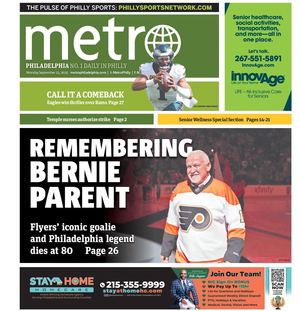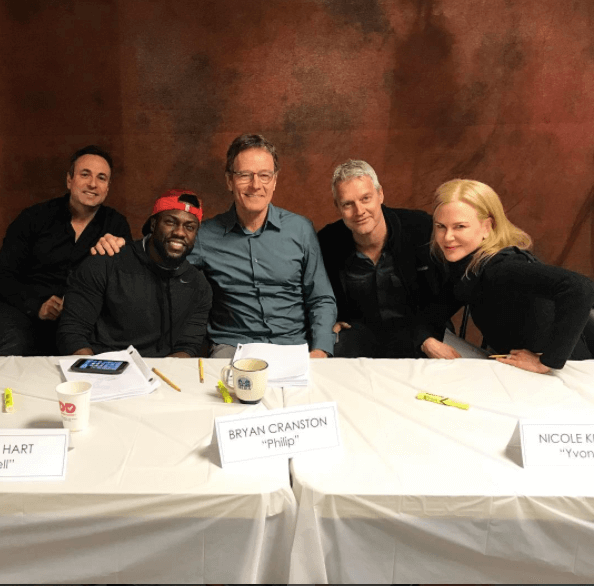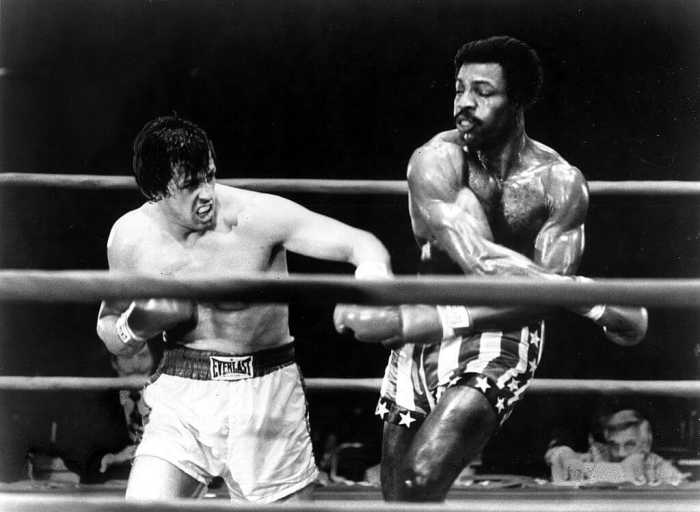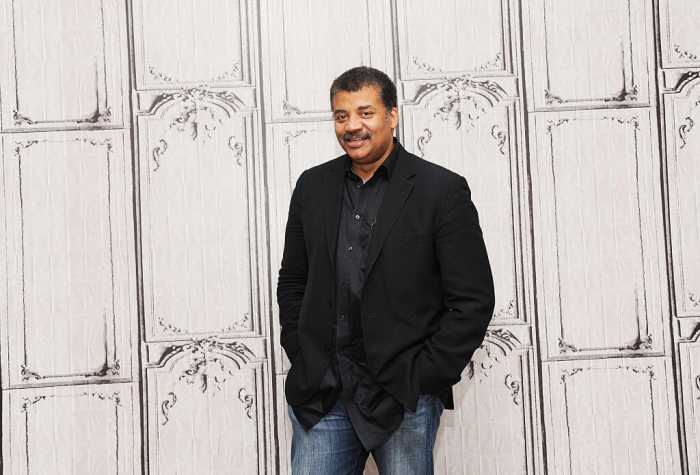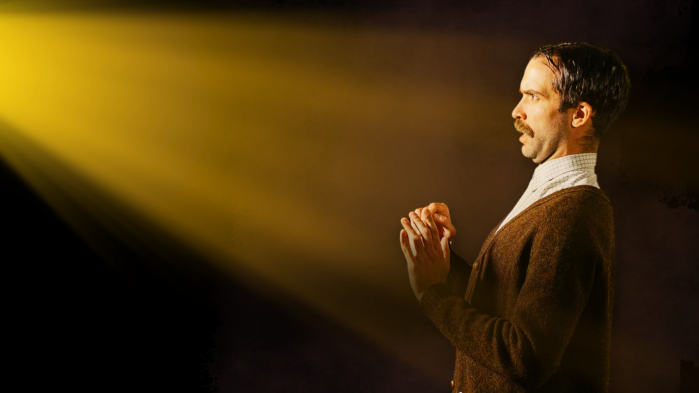When you think of a superhero, there’s typically a typecast— courageous, powerful and most of the time, having a strong moral compass.
But in the real world, it can be said that superheroes wouldn’t exactly be that black and white. In fact, they might suffer from the same problems that “mortals” do when it comes to alcohol or drugs. Case in point: “Archenemy.” The latest film from writer-director Adam Eygpt Mortimer stars Joe Manganiello as a superhero who has apparently lost his powers after arriving from another dimension, or so he says. When a teen who is delving into the world of crime journalism (Skylan Brooks) happens upon the fallen superhero in a dark alley, the two begin on a journey of wiping the streets clean, but not in the cookie cutter way you might see in Marvel movies. Then, add in an unpredictable villain dubbed The Manager (played by “It’s Always Sunny in Philadelphia” star Glenn Howerton) and the storyline really picks up.
For this role, Howerton gets to exercise different creative muscles and steers away from his comedic characters. The outcome is vastly entertaining, and you get to see him play with the idea volatility that can’t be fit into one box— which he said was the most fun part of getting to step into a villain’s shoes. Howerton spoke with Metro to discuss more about what went into making “Archenemy.”
What was it about this role that intrigued you?
There were a few things — I had a relationship with the company behind the movie, SpectreVision. I’ve known those guys for a while and I just think [they’re] brilliant, I love what they do and I’m a huge, huge fan of their movies, so that was number one. That in and of itself is great and then they sent Adam Egypt Mortimer’s film he made before “Archenemy,” which was “Daniel Isn’t Real.” That movie had not come out yet but they sent me an advanced copy of it so I could watch it and I was absolutely blown away. Obviously I really enjoyed the script too, but even more than that was just the opportunity work with SpectreVision and the opportunity to work with Adam—and of course the opportunity to play something dramatic, which is something I haven’t done.
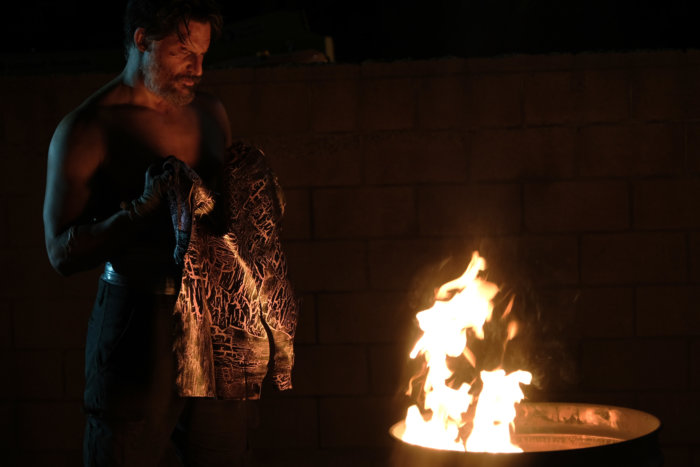
How would you describe your character? Did you do anything specific to get into that villain mindset?
I think for me, the main thing was making sure that I take great pleasure in keeping whoever I’m in the room with on slippery grounds. I think that for me was part of the fun because for the character — that is how he sort of achieves power is by being somewhat erratic. [He is] constantly switching gears from being jovial and funny to being like genuinely scary and menacing. It’s that unpredictability that I think makes some people pretty scary.
That was something that I was really trying to play with a lot, just being unpredictable as a person to the characters in the room. But I definitely worked a lot more on this and I spent a lot more time on this. It’s something you take for granite on a TV show — you know the character inside and out when you’ve been playing him for years and years and years. I’ve made that mistake before where I showed up to set and I’m like oh I’ll just show up like I do on “Sunny” and I’ll just do it. That actually happened to me on the first day of “The Mindy Project,” I thought oh it’s comedy I’ll just show up and be funny and do funny s*** like I normally do. All of the sudden they started improvising and I couldn’t improvise. I was like oh my God, I never had a problem improvising before why can’t I improvise right now? Luckily it was only that one scene that I was shooting that day.
I was driving home and I was thinking about it and I realized how I can’t improvise as a character if I don’t realize how the character thinks. If I don’t know what makes him tick, if I don’t know what pushes his buttons, if I don’t know the ins and outs of who this guy is and what he wants, then I don’t know when he’s not getting it and I don’t know what he’s fighting for. Figuring all of that stuff out and knowing all of that stuff inside and out for The Manager was a particularly important process for me.
What was the most fun part about playing a villain for you? On “It’s Always Sunny in Philadelphia” your character Dennis can be being considered somewhat of a villain character for comedy, but with The Manager you are a full-fledged villain for drama.
For me personally, and I don’t want to influence too much how the audience perceives Dennis, but I actually see Dennis as somewhat harmless. I think he’s like a lot of bluster and a lot of narcissism and a lot of like anger—but I don’t think he’s actually menacing. Whereas The Manager, oh, that was a big challenge for me. You got to be able to watch the movie and think this is a formidable foe for a 6-foot-4, 200 pound Joe Manganiello. The audience has to believe that this guy makes other bad guys scared. That’s a big difference, I think on “Sunny” you have to watch Dennis and kind of go, ‘That’s just Dennis he’s really harmless.’ But then you have to be able to watch The Manager and go oh s*** this guy will kill you.
Was there a scene in particular that you were the most excited to see come to fruition onscreen?
For sure, there’s just something so juicy about that first scene between me and Zolee (Griggs) who plays Indigo in the movie. The very first scene that I’m in was one of the most fun to play and then it was also really fun to do the scene with my two goons where I stuff the paper in the one dude’s mouth, that was pretty interesting, too. Those guys are super cool, and super fun and easy to work with because you know you’re dealing with another actor and you’re like I’m going to manhandle you, are you cool with us? And they’re just like oh yeah man I don’t give a s***, I don’t care. He was so game, that was really cool.
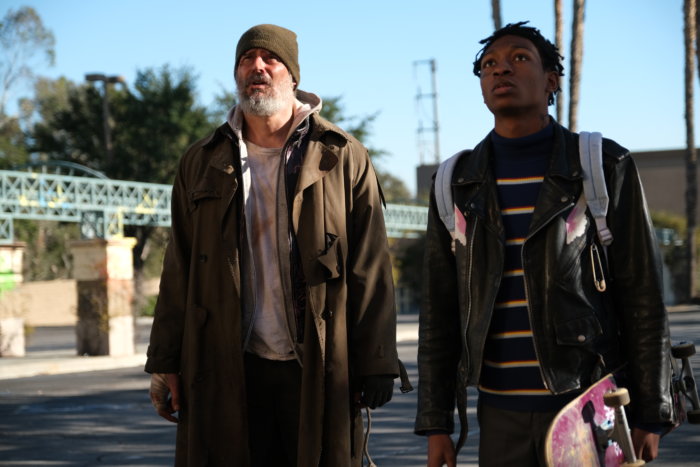
I thought this film as a whole was a really interesting concept for a superhero movie, how would you compare this to other superhero films that are out today?
It’s just a grungier, grittier, more independent feel. It doesn’t have a bunch of people flying around, it’s more sort of the promise of someone being a superhero than actually being a superhero. Not to get too cheesy, but ultimately it’s sort of like what ultimately make someone a superhero? Is it the fact that they can fly around or they have a super powerful fist that makes you a super hero? Or is it if you have power what you would do with that power, you know the whole Peter Parker with great power comes great responsibility thing? Or, what happens if the superhero is ultimately just a psychopathic drunk? I found that to be pretty interesting. To me, it was just fun to be part of something that felt much more like a grounded character-based superhero movie rather than something that’s about special effects or crazy action sequences.
What do you hope audiences take away from the film or walk away saying after getting to see “Archenemy?”
I think it should just be fun, I want people to watch the movie and have fun. That’s what I wanted certainly from playing my character, I didn’t want him just be a scary bad guy, I wanted it to be fun to watch. This is actually a genre of movie that I like watching—I like gritty, violent movies, and it’s really fun when the performances in that movie looks like the actors are having fun doing it as well. Maybe it sounds a little sort of trite, but I think people should just sit back grab a snack and enjoy and have fun.
“Archenemy” will drop in theaters, on Digital and On Demand Dec. 11.
